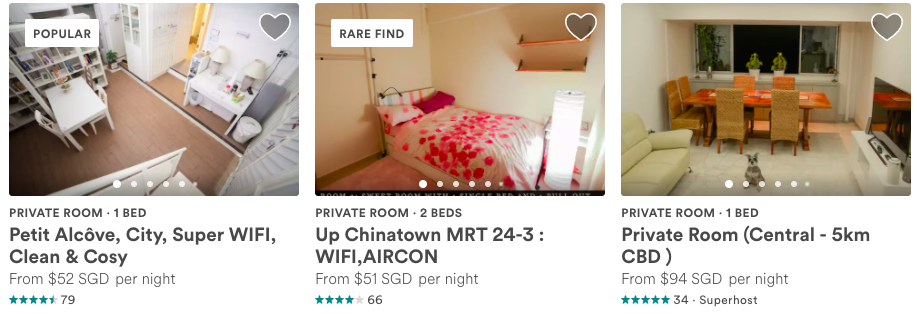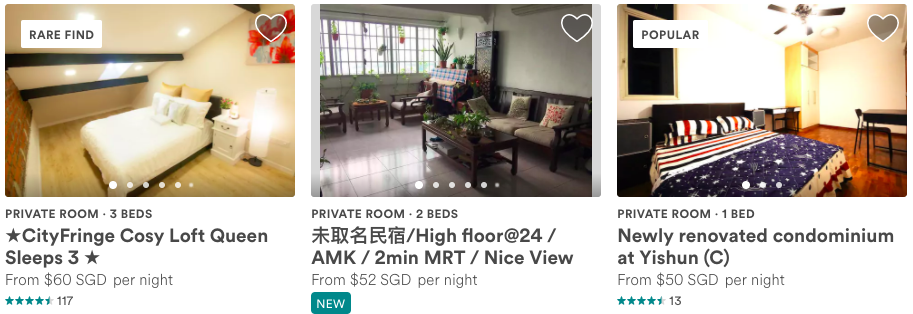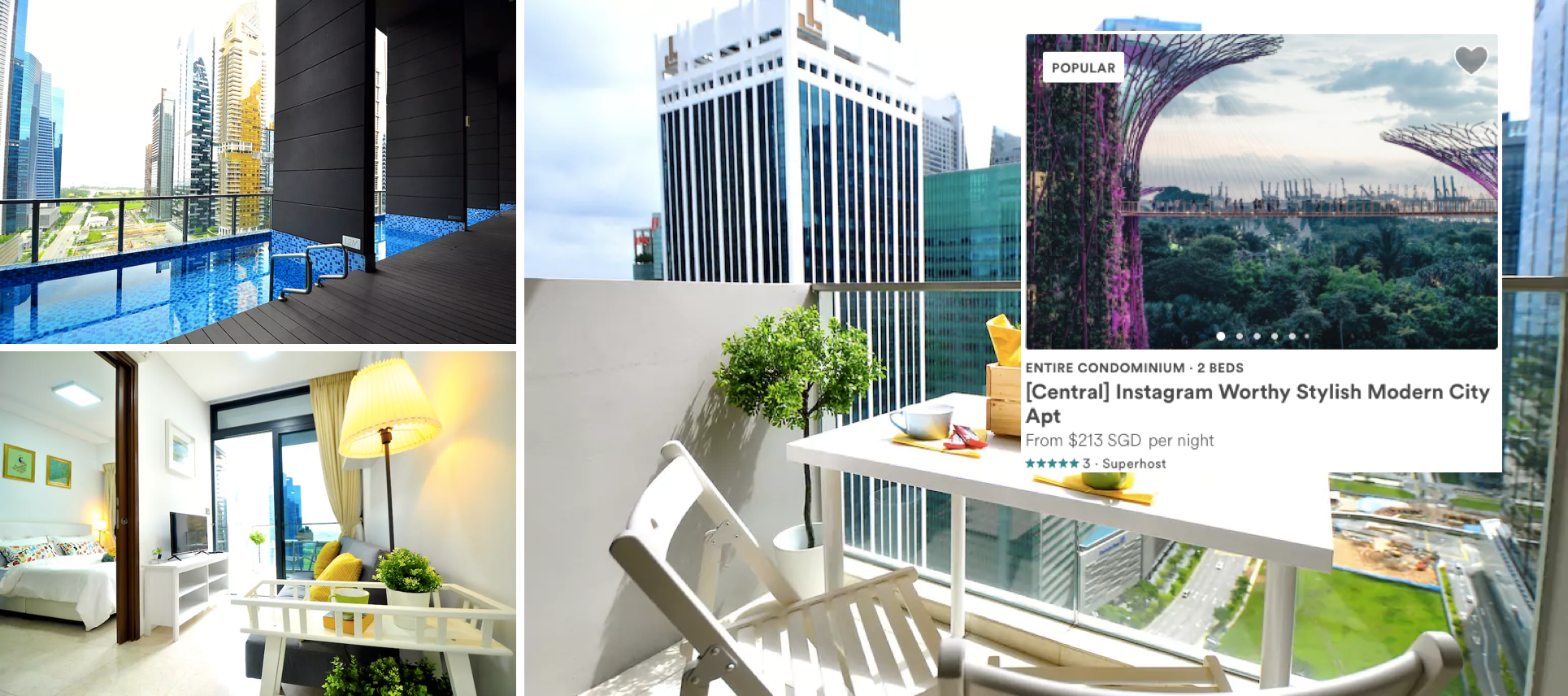For the first time, two men have been charged under the Planning Act for renting out four condominium units for short-term rentals via home-sharing service Airbnb.
The prosecution is a first since new regulations against home-sharing kicked in on May 15.
Is Airbnb legal in S'pore?
So, are short-term rentals legal or illegal in Singapore?
Here are the facts:
Housing Development Board (HDB) flats:
- For HDB flats, the minimum stay still remains at six months.
- Also, HDB flat owners are not allowed to rent out their flats to tourists, only foreigners who hold passes such as Student Passes and Long-Term Social Visit Passes.
- Owners of one- and two-room HDB flats are not allowed to rent out their flats.
- For three-room flats, up to six persons (including the flat owner and his/her family) can stay in the same flat.
- For four-room flats and larger, it's up to nine persons (including the flat owner and his/her family).
Private residential properties:
- Under the Planning Act, it's illegal for people to rent out, sublet or share their private homes with others for under three months. It was six months previously before the bar was lowered this year from June 30, 2017.
- Up to six unrelated people are allowed to stay at any one time. URA's permission is required for any more than that.
[related_story]
Previous cases
- The first confiscation took place in 2014, when two home owners lost their flats after HDB found out they were letting out their units to tourists.
- In 2016, a four-storey corner terraced house in Sembawang was raided after neighbours complaint about the noise.
Home listings still available
However, as of Dec. 6, 2017, more than 300 listings of homes can still be found on the Airbnb website.

 Screenshots from Airbnb.
Screenshots from Airbnb.
The act of listing your home on home-sharing websites such as Airbnb is not illegal.
A few home-sharing site listings are for long-term options, while most are for short-term stays, which means they are breaking the law.
Neighbours complain about short-term visitors
HDB has said rules to disallow short-term stays are "to pre-empt high turnover of occupants, which could affect the living environment for HDB residents".
The URA has already seen a 60 percent increase in complaints from home owners about breaches of this rule in their residential properties, according to Minister for National Development Lawrence Wong.
The complaints were related to public nuisance or even safety concerns for their families.
More tourists staying in private residences and not hotels
However, home-sharing does not just impact the residents of these neighbourhoods.
They might pose a mortal threat to the local hotel industry as well -- the next potential area for tech disruption.
Already, the cost advantage of Airbnb is quite obvious.
Pleasant apartments are rented out for as low as S$50 per night, while hotel prices cost upwards of S$120.
Budget travellers having to put up with high costs in Singapore would opt for a home-sharing place over a traditional hotel or serviced apartment.
Informal short-term rentals in Singapore are gaining ground, judging by a rise in tourist arrivals that are not reflected in hotel receipts.
However, there is also the possibility that some visitors might simply be transitioning through Singapore without staying as they go aboard cruises, for example.
Even so, the potential impact of home-sharing services on the hotel industry cannot be underestimated.
Can landed private property be used for Airbnb?
In July 2016, the authorities raided a four-storey corner terraced house at Sembawang.
This was after some 40 neighbours in the private estate signed a petition to investigate the premises suspected to have been rented out on a home-sharing basis on Airbnb and another platform.
Why are people in Singapore against home-sharing and the Airbnb model?
From a grassroots and non-governmental perspective, residents who can afford private property in Singapore are paying a premium for privacy.
The opening up of access and use of premium residential spaces for rental purposes inadvertently cheapens the perceived value of the property.
Top image via Airbnb
If you like what you read, follow us on Facebook, Instagram, Twitter and Telegram to get the latest updates.
